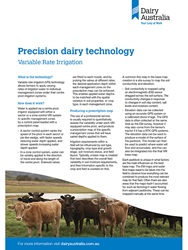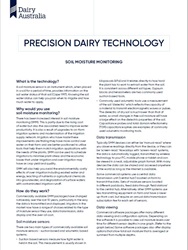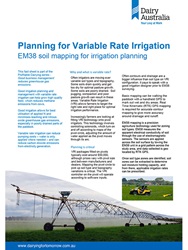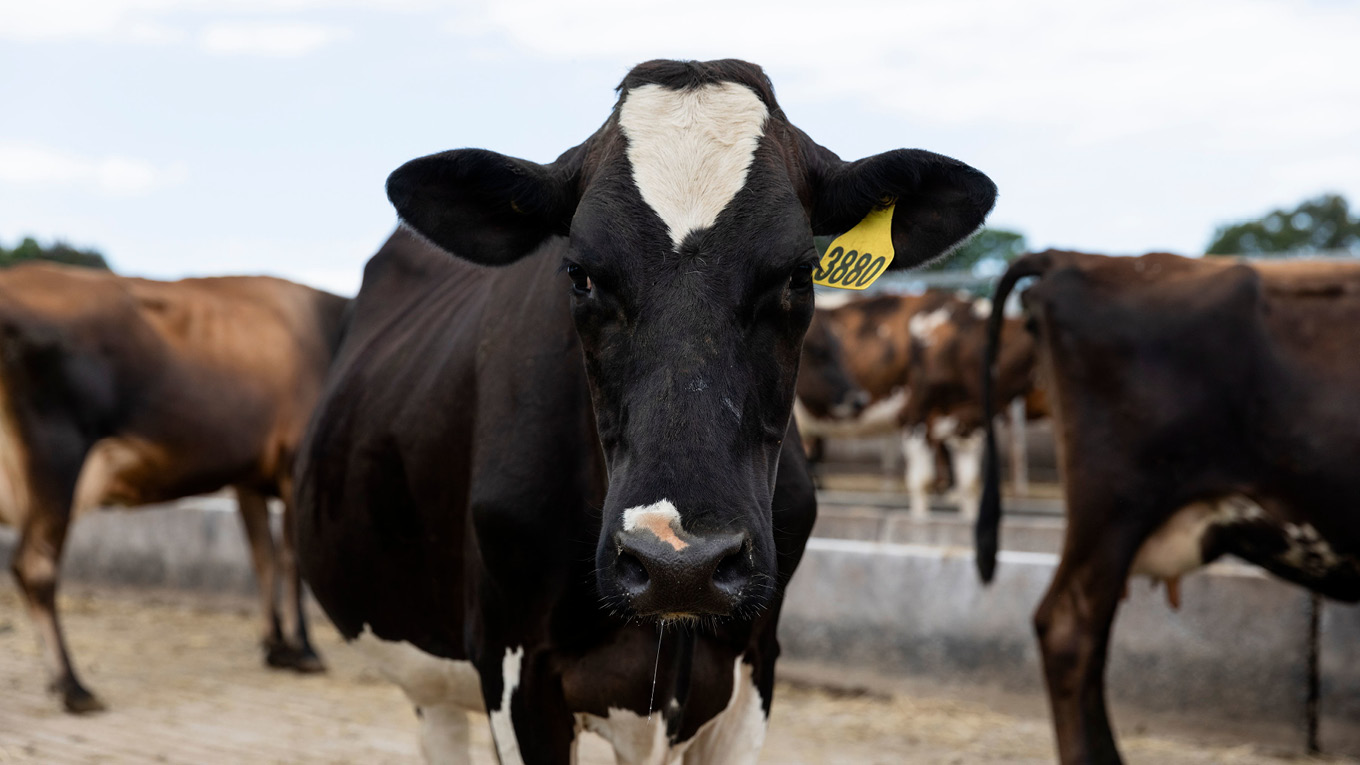Automation & Variable Rate Irrigation
Variable rate irrigation allows farmers to target the right irrigation rate in the right place for optimal irrigation performance. This technology can be retrofitted to centre pivot and linear irrigators and allows farmers to deliver precise amounts of water to different parts of a paddock.
For farmers with varying soil and topography across paddocks this technology can deliver better pasture growth, together with lower water and power use
This fact sheet describes how variable rate irrigation systems work and how dairy farmers can make more efficient use of this technology.
This video describes the use of variable rate irrigation technology to grow more pasture with less water.
Other technologies to assist efficient irrigation practices
For more efficient use of variable rate irrigation, both soil moisture monitoring and EM38 mapping are very useful technologies.
Soil moisture monitoring
A soil moisture sensor is an instrument which, when placed in a soil for a period of time, provides information on the soil water status of that soil.
Knowing the soil water status can help farmers plan when to irrigate and how much water to apply. Best management practice in irrigation includes regularly monitoring soil moisture levels throughout the irrigation season.
Farmers should adopt and use long-term soil moisture monitoring to help achieve optimum water use and maximum crop and pasture yields.
Soil moisture monitoring
This fact sheet describes how soil moisture monitoring devices work and how dairy farmers can use the information generated by these soil moisture probes to assist better irrigation decision making.
EM38 soil mapping
EM38 is an easy-to-use geophysical surveying instrument that provides a rapid measure of soil electrical conductivity. Estimates of soil type and topography and soil water content derived from EM38 measurements may be used to generate variable rate irrigation maps that can be loaded onto the variable rate irrigation controller on the pivot.
Planning for variable rate irrigation
The fact sheet is part of the Profitable Dairying series and describes EM38 mapping for zoning soil types in preparation for variable rate irrigation.



